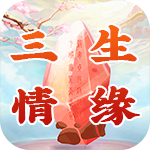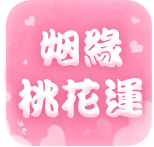1. 有關新年的英語故事
The Spring Festival, also known as the Lunar New Year, is the most important traditional festival in China, which falls on in late January or early February.
The historical reason for beginning the new year in such a time is that it is the time between autumn harvest and spring plowing and planning. In another words, it is the time for rest, relaxation and celebration after a year's toil. Except this practical reason for celebrating the Spring Festival, a popular Chinese legend offers another explanation, which is affectedly known in China. In ancient time, a mythological demon called” Nian” that lived under the sea would plague people once a year on the even of the new year. It jumped out from the sea, attacked villages, devouring people, animals and plants. Could no longer bear Nian's brutal persecution, the villagers gathered to discuss how to deal with” Nian” and some people suggested that the demon was afraid of loud noises, red color and flame. So people lighted firecrackers, put on red couplets on their gates, lit firework and beat gongs and drums to drive Nian away. The idea worked and Nian ran away. Since ever, the custom and tradition of celebrating the Spring Festival born and the practice of putting red couplets on gates, setting off firecrackers。
春節期間,也稱為農歷新年,它是中國最重要的傳統節日,在1月下旬或2月初。
原因是,新的一年開始在這一時刻是秋收和春耕、規劃設計。換句話說,它是經過一年的辛苦工作而獲得的休息、放松、慶典時間。除了這些以外,慶祝春節是另一種傳說。在古代,一個的惡魔叫做“年”,住在海里,會傳播瘟疫。所以在百姓慶祝這一年一次的新年。它從海中跳了出來,攻擊村莊,狼吞虎咽地吃著人類、動物和植物。村民們再也不能忍受“年”殘酷迫害,村民們聚集起來,討論如何處理“年”,有些人認為妖精是害怕噪音,紅顏色和火焰。所以人們點燃爆竹,貼上紅對聯,點燃煙花在大門口打鑼鼓喧天。最后,“年”跑掉了。從此,人們過年就貼紅對聯,放鞭炮。
2. 春節的故事+英語
春節和年的概念,最初的含意來自農業,古時人們把谷的生長周期稱為“年”,《說文。
禾部》:“年,谷熟也:。在夏商時代產生了夏歷,以月亮圓缺的周期為月,一年劃分為十二個月,每月以不見月亮的那天為朔,正月朔日的子時稱為歲首,即一年的開始,也叫年,年的名稱是從周朝開始的,至了西漢才正式固定下來,一直延續到今天。
但古時的正月初一被稱為“元旦”,直到中國近代辛亥革命勝利后,南京臨時政府為了順應農時和便于統計,規定在民間使用夏歷,在政府機關、廠礦、學校和團體中實行公歷,以公歷的元月一日為元旦,農歷的正月初一稱春節。1949年9月27日,新中國成立,在中國人民政治協商會議第一屆全體會議上,通過了使用世界上通用的公歷紀元,把公歷的元月一日定為元旦,俗稱陽歷年;農歷正月初一通常都在立春前后,因而把農歷正月初一定為“春節”,俗稱陰歷年。
傳統意義上的春節是指從臘月初八的臘祭或臘月二十三的祭灶,一直到正月十五,其中以除夕和正月初一為高潮。在春節這一傳統節日期間,我國的漢族和大多數少數民族都有要舉行各種慶祝活動,這些活動大多以祭祀神佛、祭奠祖先、除舊布新、迎禧接福、祈求豐年為主要內容。
活動形式豐富多彩,帶有濃郁的民族特色。春節傳說之一:熬年守歲守歲,就是在舊年的最后一天夜里不睡覺,熬夜迎接新一年的到來的習俗,也叫除夕守歲,俗名“熬年”。
探究這個習俗的來歷,在民間流傳著一個有趣的故事:太古時期,有一種兇猛的怪獸,散居在深山密林中,人們管它們叫“年”。它的形貌猙獰,生性兇殘,專食飛禽走獸、鱗介蟲豸,一天換一種口味,從磕頭蟲一直吃到大活人,讓人談“年”色變。
后來,人們慢慢掌握了“年”的活動規律,它是每隔三百六十五天竄到人群聚居的地方嘗一次口鮮,而且出沒的時間都是在天黑以后,等到雞鳴破曉,它們便返回山林中去了。算準了“年”肆虐的日期,百姓們便把這可怕的一夜視為關口來煞,稱作“年關”,并且想出了一整套過年關的辦法:每到這一天晚上,每家每戶都提前做好晚飯,熄火凈灶,再把雞圈牛欄全部拴牢,把宅院的前后門都封住,躲在屋里吃“年夜飯”,由于這頓晚餐具有兇吉未卜的意味,所以置辦得很豐盛,除了要全家老小圍在一起用餐表示和睦團圓外,還須在吃飯前先供祭祖先,祈求祖先的神靈保佑,平安地度過這一夜,吃過晚飯后,誰都不敢睡覺,擠坐在一起閑聊壯膽。
就逐漸形成了除夕熬年守歲的習慣。守歲習俗興起于南北朝,梁朝的不少文人都有守歲的詩文。
“一夜連雙歲,五更分二年。”人們點起蠟燭或油燈,通宵守夜,象征著把一切邪瘟 病疫照跑驅走,期待著新的一年吉祥如意。
這種風俗被人們流傳至今。春節傳說之二:萬年創建歷法說相傳,在古時候,有個名叫萬年的青年,看到當時節令很亂,就有了想把節令定準的打算。
但是苦于找不到計算時間的方法,一天,他上山砍柴累了,坐在樹陰下休息,樹影的移動啟發了他,他設計了一個測日影計天時的晷儀,測定一天的時間,后來,山崖上的滴泉啟發了他的靈感,他又動手做了一個五層漏壺,來計算時間。天長日久,他發現每隔三百六十多天,四季就輪回一次,天時的長短就重復一遍。
當時的國君叫祖乙,也常為天氣風云的不測感到苦惱。萬年知道后,就帶著日晷和漏壺去見皇上,對祖乙講清了日月運行的道理。
祖乙聽后龍顏大悅,感到有道理。于是把萬年留下,在天壇前修建日月閣,筑起日晷臺和漏壺亭。
并希望能測準日月規律,推算出準確的晨夕時間,創建歷法,為天下的黎民百姓造福。有一次,祖乙去了解萬年測試歷法的進展情況。
當他登上日月壇時,看見天壇邊的石壁上刻著一首詩:日出日落三百六,周而復始從頭來。草木枯榮分四時,一歲月有十二圓。
知道萬年創建歷法已成,親自登上日月閣看望萬年。萬年指著天象,對祖乙說:“現在正是十二個月滿,舊歲已完,新春復始,祈請國君定個節吧”。
祖乙說:“春為歲首,就叫春節吧”。據說這就是春節的來歷。
冬去春來,年復一年,萬年經過長期觀察,精心推算,制定出了準確的太陽歷,當他把太陽歷呈奉給繼任的國君時,已是滿面銀須。國君深為感動,為紀念萬年的功績,便將太陽歷命名為“萬年歷”,封萬年為日月壽星。
以后,人們在過年時掛上壽星圖,據說就是為了紀念德高望重的萬年。春節傳說之三:貼春聯和門神據說貼春聯的習俗,大約始于一千多年前的后蜀時期,這是有史為證的。
此外根據《玉燭寶典》,《燕京歲時記》等著作記載,春聯的原始形式就是人們所說的“桃符”。在中國古代神話中,相傳有一個鬼域的世界,當中有座山,山上有一棵覆蓋三千里的大桃樹,樹梢上有一只金雞。
每當清晨金雞長鳴的時候,夜晚出去游蕩的鬼魂必趕回鬼域。鬼域的大門坐落在桃樹的東北,門邊站著兩個神人,名叫神荼、郁壘。
如果鬼魂在夜間干了傷天害理的事情,神荼、郁壘就會立即發現并將它捉住,用芒葦做的繩子把它捆起來,送去喂虎。因而天下的鬼都畏懼神荼、郁壘。
于是民間就用桃木刻成他們的模樣,放在自家門口,以避邪防害。后來,人們干脆在桃木。
3. 誰有一些關于新年的英語句子
I hope you have a most happy and prosperous New Year,友愛和寧靜. 愿新年為你帶來快樂、幸運. 恭祝健康,新年幸福。
Wishing you happiness during the holidays and throughout the New Year,大吉大利。
Good health, love and peace. 祝節日快樂,新年快樂. 謹祝新年快樂幸福, good luck and much happiness throughout the year新年祝福英語
我這里有幾句
May the coming New Year bring you joy
4. 用英語描述過年情景的句子
Spring Festival is the most inportantfestival in China.It's to celebrate the lunar calender's new year.In the even-ing before the Spring Festival,fmilies fet together and have a big meal.In ma-ny places people like to set off fire-crackers。
5. 有關春節的英語句子
春節 The Spring Festival 農歷 lunar calendar 正月 lunar January; the first month by lunar calendar 除夕 New Year's Eve; eve of lunar New Year 初一 the beginning of New Year 元宵節 The Lantern Festival Customs: 過年 Guo-nian; have the Spring Festival 對聯 poetic couplet: two successive rhyming lines in poetry 春聯 Spring Festival couplets 剪紙 paper-cuts 年畫 New Year paintings 買年貨 special purchases for the Spring Festival do Spring Festival shopping 敬酒 propose a toast 燈籠 lantern: a portable light 煙花 fireworks 爆竹 firecrackers (People scare off evil spirits and ghosts with the loud pop.) 紅包 red packets (cash wrapped up in red paper, symbolize fortune and wealth in the coming year.) 舞獅 lion dance (The lion is believed to be able to dispel evil and bring good luck.) 舞龍 dragon dance (to expect good weather and good harvests) 戲曲 traditional opera 雜耍 variety show; vaudeville 燈謎 riddles written on lanterns 燈會 exhibit of lanterns 守歲 staying-up 拜年 pay New Year's call; give New Year's greetings; New Year's visit 禁忌 taboo 去晦氣 get rid of the ill- fortune 祭祖宗 offer sacrifices to one's ancestors 壓歲錢 gift money; money given to children as a lunar New Year gift Culture Note: In the old days, New Year's money was given in the form of one hundred copper coins strung together on a red string and symbolized the hope that one would live to be a hundred years old. Today, money is placed inside red envelopes in denominations considered auspicious and given to represent luck and wealth 辭舊歲 bid farewell to the old year 掃房 spring cleaning; general house-cleaning Blessings: 金玉滿堂 Treasures fill the home 生意興隆 Business flourishes 歲歲平安 Peace all year round 恭喜發財 Wishing you prosperity 和氣生財 Harmony brings wealth 心想事成 May all your wishes come true 吉祥如意 Everything goes well 國泰民安 The country flourishes and people live in peace 招財進寶 Money and treasures will be plentiful 一帆風順 Wishing you every success 步步高升 Promoting to a higher position 出入平安 Safe trip wherever you go 祝你新的一年快樂幸福: Wish you happiness and prosperity in the coming year! 事業成功,家庭美滿: Wish you success in your career and happiness of your family! Food names: 年糕 Nian-gao; rise cake; New Year cake 團圓飯 family reunion dinner 年夜飯 the dinner on New Year's Eve 餃子 Jiao-zi; Chinese meat ravioli;dumpling 湯圓 Tang-yuan; dumplings made of sweet rice, rolled into balls and stuffed with either sweet or spicy fillings 八寶飯 eight treasures rice pudding 糖果盤 candy tray: 什錦糖 assorted candies - sweet and fortune 蜜冬瓜 candied winter melon - growth and good health 西瓜子 red melon seed - joy, happiness, truth and sincerity 金桔 cumquat - prosperity 糖蓮子 candied lotus seed - many descendents to come 糖藕 candied lotus root - fulfilling love relationship 紅棗 red wjdates - prosperity 花生糖 peanut candy - sweet。
6. 關于新年英語小故事
Three Little Pigs is a fairy tale featuring talking animals. Published versions of the story date back to the late 18th century, but the story is thought to be much older. The story was assured its place in world's folklore thanks to an immensely popular 1933 Walt Disney animated cartoon.(這一段是基本介紹,可作背景資料用)
Mother Pig sends her three little piglets out into the world to live on their own.
The first little pig builds a house of straw, but a wolf blows it down and eats the pig. The encounter between wolf and pig features ringing proverbial phrases:
One day the big bad wolf came and knocked on the first little pig's door and said, "Little pig, little pig, let me come in." And the little pig answered, "No, no, I won't let you come in, not by the hair on my chinny chin chin." "Well," said the wolf, "then I'll huff and I'll puff and I'll blow your house in." So he huffed and he puffed and he blew the house down and ate the little pig.
The second pig builds a house of sticks, has the same conversation with the wolf, and meets the same fate.
The third pig builds a house of brick. The wolf cannot huff and puff hard enough to blow the house down. He attempts to trick the third little pig out of his house, but the pig outsmarts him at every turn. Finally, the wolf threatens to come down the chimney, whereupon the third little pig boils a pot of water into which the wolf plunges. The little pig cooks the wolf and eats him
7. 簡單的英語新年句子
Best wishes for the year to come!
恭賀新禧!
Good luck in the year ahead!
祝吉星高照!
May you come into a good fortune!
恭喜發財!
I would like to wish you a joyous new year and express my hope for your
happiness and good future.
祝新年快樂,并愿你幸福吉祥,前程似錦。
May the New Year bring many good things and rich blessings to you and all
those you love!
愿新年帶給你和你所愛的人許多美好的事物和無盡的祝福!
Rich blessings for health and longevity is my special wish for you in the
coming year.
祝你在新的一年里身體健康,多福多壽。
Good luck, good health, hood cheer. I wish you a happy New Year.
祝好運、健康、佳肴伴你度過一個快樂新年。
With best wishes for a happy New Year!
祝新年快樂,并致以良好的祝福。
I hope you have a most happy and prosperous New
Year.
謹祝新年快樂幸福,大吉大利。
With the compliments of the season.
祝賀佳節。
8. 關于春節的英語句子有哪些
beautiful wish to you and your family --- live a happy life and everything goes well.
A happy New Year to you.
恭賀新年。
Allow me to congratulate you on the arrival of the New Year and to extend to
you all my best wishes for your perfect health and lasting prosperity.
恭賀新禧,祝身體健康、事業發達。
At such a wonderful moment, I send you a gentle and warm care and wish: May every day be brilliant for you!
Best wishes for the holidays and happiness throughout the New Year.
恭賀新禧,萬事如意。
Good health, good luck and much happiness throughout the year.
恭祝健康、幸運,新年快樂。
Good luck and great success in the coming New Year.
祝來年好運,并取得更大的成就。
I give you endless brand-new good wishes. Please accept them as a new
remembrance of our lasting friendship.
給你我無盡的新的祝福,讓它們成為我們永恒友誼的新的紀念。
I hope you have a most happy and prosperous New Year.
謹祝新年快樂幸福,大吉大利。


















